Immerse yourself in Barcelona's vibrant flavors and uncover hidden culinary gems with our expert insider guides. Plan an unforgettable trip today!
Read more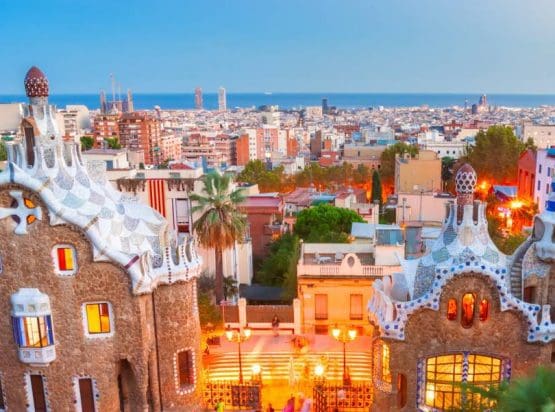
EXPLORE ALL OUR CATALUNYA WINE REGIONS GUIDE
Last updated: October 11, 2024
Running south from the spectacular Pyrenees mountain range and along the eastern Mediterranean coast is the fascinating province of Catalunya, home to several diverse wine regions. Some of these prosperous DOs are already international superstars: Priorat, Montsant, and Cava are all household names, producing lavishly expensive Garnacha (Grenache), affordable bubbly, and everything in between. The only downside to this wave of critical and consumer attention is that smaller and less established areas like Alella are often overlooked.
But this is our loss, for some fascinating developments are happening in this small appellation north of Barcelona. To journey into the vineyards of Alella is to experience the esoteric, authentic, and unique. It merits a closer look.
Discover more about Spanish Wine
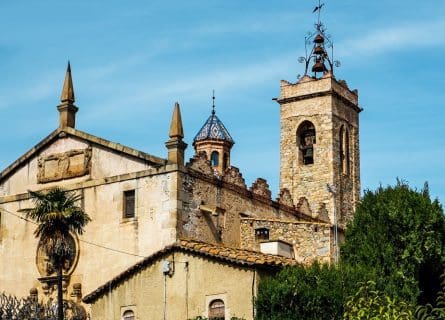
The Catalans do not need to take lessons in wine growing! Indeed, evidence shows that this part of eastern Spain has been producing wine for centuries; the Phoenicians cultivated vines in eastern Spain long before the Romans took over the Iberian Peninsula. Nevertheless, the Romans—who christened Barcelona as Barcino—made viticulture a nationwide industry in the 1st Century AD.
However, after the fall of the Western Roman Empire in 476, wine production in the Catalan region ceased to exist; it could not survive the onslaught of the Gothic and Vandal tribes from the North or the Moors who invaded Spain in 711.
Catalunya’s wine resurgence occurred in the Middle Ages, re-introduced by religious orders from Burgundy and the Rhine, who brought their wine knowledge to Catalunya. Alella’s wines gained recognition and received great acclaim when served at the Royal Court in Aragon.
Yet the region’s aspirations for independence faded after the Catalan ruler Ramon Berenguer married Petronilla of Aragon. A mighty empire was created that day, stretching from Barcelona to Sicily and the Balearic Islands.Yet Catalunya had to follow when Aragon was absorbed into the Kingdom of Castile in the 15th century.
Of course, this had little impact on the province’s thriving wine industry: by the 18th century, there were many more vines along the Mediterranean coast than there are today. Trade with the Americas, meanwhile, brought great prosperity to the Catalan wine trade in the 1700s. However, the Phylloxera louse’s advent at the end of the 19th century devastated many vineyards.
In the 20th century, Alella became famous for producing Spain’s sparkling Cava, today primarily made in the much larger Penedès wine region south of Barcelona. In 1953, the region received DO status; unfortunately, the zone has never achieved the cachet of Priorat or Montsant, partly because continuing urban development has encroached on the available land.
But there is much to celebrate: the 1980s heralded significant improvements in winemaking methods as investors used much-needed funds to modernize equipment and standards. The contemporary face of Alella winemaking is focused and proud, encompassing several quality-focused bodegas whose passionate owners continually strive to improve their international profile.
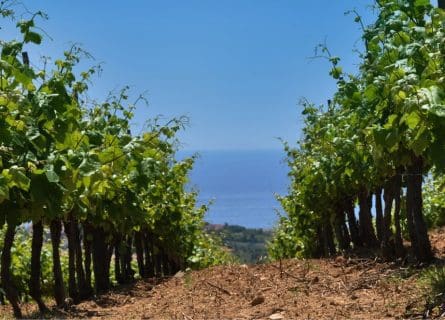
Alella, a tiny yet charming part of the Catalan landscape, takes its name from a small town in the Maresme region about half an hour up the coast from Barcelona. The vineyards are located along the coastline and run into the foothills of the Sierra de Parpes range. The climate is unabashedly Mediterranean, with relatively mild winters and long, warm summers.
However, variations in altitude (ranging from 60 to 250 meters) engender a pleasing stylistic diversity in the wines – higher elevations tend to yield fresher styles than the low-lying land that flanks the sea. Thus, local winegrowers will tell you that you can find the best climats (vineyard sites) in the higher-altitude sites on the Parpes slopes, which enjoy a more continental climate sheltered from the sea breezes. Increasingly, winemakers produce wines of real concentration, balance, and structure from these superior terroirs.
Soil Variations and Wine Characteristics
Conversely, the oldest vineyards along the coast produce softer, less structured wines with lower acidity. The coastal vineyards are planted in dark soils, while the higher altitude areas, known as Valles, feature more limestone in their soil structure. The distinctive quality of the Alella terroir is the all-important topsoil, known as Saulo in Catalan. This sandy, granite-based soil retains heat and ensures that full ripeness is rarely problematic for Alella’s wine producers. But Alella is a very heterogeneous appellation, producing a broad palate that includes zesty whites, aromatic rosé, potent reds, and a small volume of dessert wines.
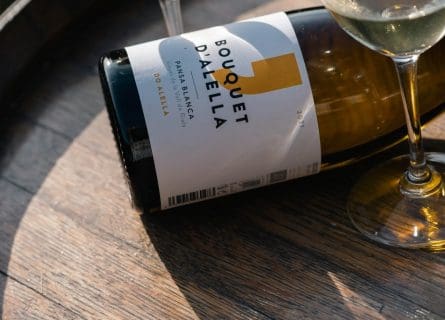
You cannot pigeonhole the wines of this small but perfectly formed DO. That becomes all too apparent when tasting the expansive portfolio of the Alella Vinícola cooperative, founded in 1906. The range of high-quality wines is impressive here, particularly considering the very reasonable price point. Many of the top white wines are single-varietal – and indeed single-site – expressions of Xarel-lo; Cava’s signature grape reaches an apogee in Alella, noted for its exquisite bouquet of fennel and pine.
However, it also blends exceptionally well with Chardonnay, as local winegrowers have proven. Small amounts of Macabeo, Malvasia, and Sauvignon Blanc are also found across the region. A real and incredible value highlight from Alella is the classic white blends and more modern varietal wines, offering a light, fresh aroma, ripe fruit flavors, and real class for a brilliant price.
Robust Reds and Versatile Rosés
Meanwhile, the reds are predominately blends of Merlot, Garnacha, and Tempranillo, known locally as Ull de Llebre. Syrah, Cabernet Sauvignon, and Pinot Noir also crop up; the final entry into this list can be surprisingly light and elegant, considering the warm Mediterranean climate. Elsewhere, red wines vary from the light and every day to the thoroughly modern, barrel-aged, and powerful as local outfits continue to refine their winemaking style.
The DO regulations permit winemakers to produce wines of all three colors – the growing volume of Alella rosé is a boon for Barcelona’s thriving hospitality sector. In the summer, it really hits the spot.
In the late 20th century, few would have predicted that Alella could have a sustainable future as a niche wine producer on the fringes of Barcelona. Urban sprawl was gobbling up vineyards at lightning speed, as few growers could resist the lure of easy money in exchange for their land.
Yet while the area under vine is barely one-third of the acreage planted towards the end of the mid-1900s, Alella is far from an irrelevance to Catalunya’s wine industry. For one thing, a constant stream of eager visitors from the nearby capital provides an incentive to maintain the tradition of wine growing here. However, Alella is far from simply being an ersatz tourist enclave.
A Beacon of Innovation and Sustainability
The real reason for the DO’s survival has been establishing markets outside Catalunya. Much credit goes to the family-owned winery Alta Alella for raising awareness of the Alella brand. Its passionate owners, enologist Josep Maria Pujol-Busquets and his wife Cristina Guillén purchased an estate in the beautiful Serralada de Marina Natural Park. The family planted their first vines in 1991, and the first vintage was released in 2001 to great acclaim. Today, this beautiful estate is fully certified as organic and produces a fantastic range of reds, whites, and Cavas, which easily rival the best of their neighbors further south.
Alta Alella represents everything attractive and optimistic about the Alella region: a dynamic and forward-thinking approach combined with an age-old tradition of respecting the natural environment, which gives rise to such vibrant, fruit-driven, and exceptional-value wines.
As Mark Twain might say, “Reports of the death of Alella have been grossly exaggerated.“
Chardonnay is a green-skinned grape varietal native to the Burgundy wine region in France and one of the most popular varieties worldwide.
Find out moreDiscover the Allure of Grenache Blanc: Full-Bodied White Wine from Northeastern Spain. Experience the Richness of High Alcohol, Low Acidity Wines.
Find out moreThe sauvignon blanc grape varietal, originally from the Bordeaux region of France, is now one of the world's most loved white varieties.
Find out moreDiscover Viura: Rioja's Prominent White Grape & Catalonia's Macabeo. Explore its versatility in exquisite wines. A must-read for wine enthusiasts.
Find out moreUnveiling Xarel-lo: A Key Grape in Catalonia's Cava Sparkling Wine. Discover the Intriguing Role of Xarel-lo in Spain's Sparkling Delight.
Find out moreDiscover the irresistible allure of Cabernet Sauvignon—a worldwide favorite with robust, dark-bodied flavor. Unleash your wine journey today!
Find out moreGarnacha: Spain's Red Gem. Akin to Pinot Noir, it bridges terroir and winemaking, crafting captivating expressions.
Find out moreMerlot is the most cultivated grape in Bordeaux and closely related to Cabernet Franc
Find out moreUnveiling Spain's Hidden Gold: Monastrell Wine - Explore the Richness and Allure of this Exceptional Varietal
Find out moreSyrah is dark-skinned and perhaps the most underrated of the 'noble' red grape varieties.
Find out moreDiscover Tempranillo: Spain's iconic red grape. From Ribera del Duero to Toro, it yields concentrated wines. Explore its synonyms and unleash its prowess.
Find out moreCatalans have truly mastered the art of fine gastronomy, so expect fresh ingredients, inventive combinations, sophisticated culinary techniques, and enough tapas to fill a subterranean cellar. Yet while there are excellent restaurants and bars to be found across this diverse region, nowhere can match Barcelona for variety and excitement. We, therefore, recommend that visitors to Alella head back to this seductive metropolis, where world-class chefs harness the best that Catalunya has to offer – farm to sea. Try the Butifarra.
Catalan Gastronomy Guide: Read more

Immerse yourself in Barcelona's vibrant flavors and uncover hidden culinary gems with our expert insider guides. Plan an unforgettable trip today!
Read more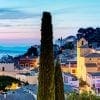
Immerse yourself in Begur's vibrant flavors and uncover hidden culinary gems with our expert insider guides. Plan an unforgettable trip today!
Read more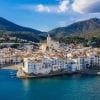
Immerse yourself in Cadaquès's vibrant flavors and uncover hidden culinary gems with our expert insider guides. Plan an unforgettable trip today!
Read more
Immerse yourself in Sitges's vibrant flavors and uncover hidden culinary gems with our expert insider guides. Plan an unforgettable trip today!
Read moreIf you would like us to customize an exclusive luxury tour, contact us and let us know your travel plans. We offer luxury food and wine tours for private groups of a minimum two guests. In addition, all of our private, chauffeured tours are available year-round upon request.

